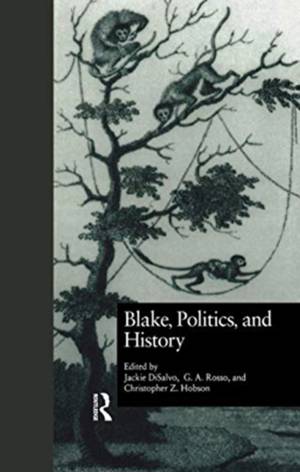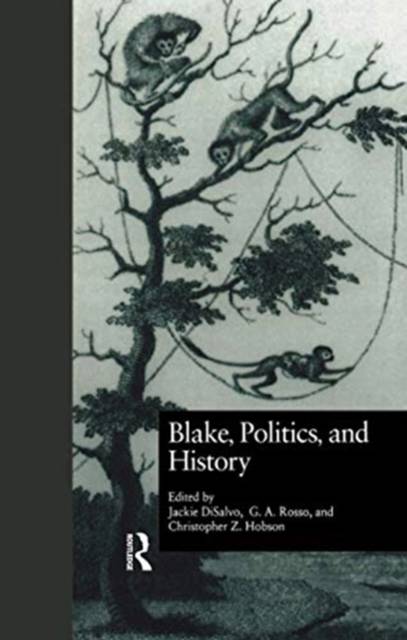
- Afhalen na 1 uur in een winkel met voorraad
- Gratis thuislevering in België vanaf € 30
- Ruim aanbod met 7 miljoen producten
- Afhalen na 1 uur in een winkel met voorraad
- Gratis thuislevering in België vanaf € 30
- Ruim aanbod met 7 miljoen producten
Zoeken
€ 60,95
+ 121 punten
Omschrijving
A groundbreaking, international collection This anthology of original essays charts new territory in mapping the work of William Blake, combining traditional and current historicist methods with a plurality of other approaches. The first new volume on Blake in the U.S. in over 10 years, it features up-to-date scholarship by major Blake scholars plus ground-breaking work from newcomers. The volume's international scope and the fact that it contains more work by women than previous collections makes it unique. Blake as the oracle of new historical criticism This work represents an ongoing effort to restore politics and history to the center of Blake studies, which is particularly important in North America where Blake has been conscripted as the oracle of a new wave of historical criticism. Unlike other anthologies this volume offers a dual heritage of Blake interpretation: it brings the historical-political tradition long popular in British Blake studies into dialog with North American scholarship. While many essays here recuperate a radical Blake opposed to imperialism, slavery, and patriarchy, differences emerge over the nature of Blake's radicalism and his stance on revolution, violence, and democratic pluralism. Contributors may champion a Blake critical of patriarchal discourse and practice, but they remain cautious about Blake's homocentric solutions. In the Blake and Women section, authors seek to reorient discussions by connecting Blake to historical issues concerning women, particularly domestic ideology and the idealized female of the conduct books. Blake as a revolutionary artist Situating itself within a resurgent historicism, this bold anthology moves away from the apolitical Blake of mentalist and deconstructionalist criticism toward the revolutionary artist celebrated in Peter Ackroyd's biography and Jim Jarmusch's film Dead Man. In doing so, it appeals to a wide-ranging audience: not only Blake scholars, inside and out of the academy, but Romanticists, art and literary historians, and contemporary theorists working on feminism, new historicism, cultural studies, and post-colonial and reader response theory.
Specificaties
Betrokkenen
- Auteur(s):
- Uitgeverij:
Inhoud
- Aantal bladzijden:
- 468
- Taal:
- Engels
- Reeks:
Eigenschappen
- Productcode (EAN):
- 9781138964808
- Verschijningsdatum:
- 8/07/2016
- Uitvoering:
- Paperback
- Formaat:
- Trade paperback (VS)
- Afmetingen:
- 138 mm x 216 mm
- Gewicht:
- 869 g

Alleen bij Standaard Boekhandel
+ 121 punten op je klantenkaart van Standaard Boekhandel
Beoordelingen
We publiceren alleen reviews die voldoen aan de voorwaarden voor reviews. Bekijk onze voorwaarden voor reviews.







